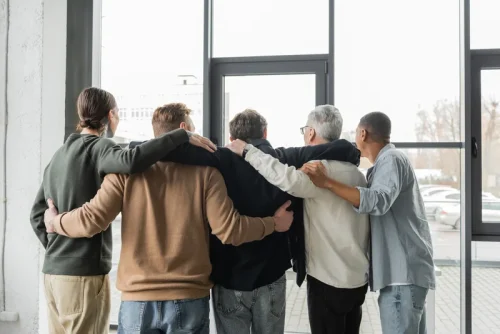
This healing is very close to the Jewish process of atonement. By atoning for our errors, we make possible reconciliation–with God, with the injured other, and with our own heart and being. Carter is a successful real estate and private equity investor who recognized the need for sober living residences in Atlanta created specifically for professionals and family members of professionals. Alberto believes in the power of group therapy, the importance of education in the disease of addiction, and the ability of creative therapy interventions to enable individuals to realize their fullest potential. Notice the words “right to resentment” and “underserved qualities” in there? It is about what we do despite that wrongdoing, “abandoning [our] right to resentment . . . “.
What Does It Mean to Make Amends in Recovery?
Someone telling you not to feel guilty rarely cures guilt. Teasing out the difference between guilt and regret can be tough. Yet, to be truly successful at forgiving and releasing past wrongs, you need to go directly to the individual you’ve hurt. When you go directly to the person, real spiritual transformation is more likely to occur.

Renewal Center for Ongoing Recovery

You don’t have to be the best son or daughter, and you don’t need to be an ideal parent, but you need to show up when you make promises to do so. Our approach addresses the physical, mental, and emotional aspects of addiction. By promoting overall well-being, we strive to support lasting recovery and help clients living amends develop the skills needed to maintain sobriety in the long term. It takes courage to not only admit a wrongful behavior or action, but also face the fact that someone else suffered consequences as a result. One vital point often discussed is whether extending an apology is the same as making amends.
Guilt and Grief: Making A Living Amends

One of the best ways you can make long-lasting changes to your relationships is by being true to your word. Essentially, don’t make promises that you can’t keep and do everything you can to live up to the promises you do make. The unfortunate truth is that we’re all human and we all fall short sometimes.
- Reaching out to people you have hurt can be intimidating.
- You may couple that making of amends with a request for forgiveness.
- If you’re familiar with substance use recovery and 12-step programs, the idea of “living amends” might ring a bell.
- Prove to those who love you that you are a person of your word, and they can rely on you when things get tough.
- Making living amends can take on many different forms depending on the relationship to those affected by the wrongdoing.
- Apologizing to loved ones can be a challenging and emotional process.
Each program is designed to exceed industry standards and provide the highest quality care. We all have samskaras, or patterns, that lead us to behave in certain ways. To learn from our experiences, we want to look at those patterns in detail. The last step is looking at how you can move out of that pattern. Self-forgiveness is often not even possible, and certainly cannot be complete, until we have in some way made amends to those we’ve injured. Making amends is not for satisfying an external standard of morality.

For example, say that you stole $20 from your brother while you were using. In the midst of your ninth step, you say to him “I’m so sorry that I stole that money from you and used it for drugs”. A true amend would be giving him $20 back along with the apology. Unfortunately, there are many things that we do in our using that we can not rectify with tangible goods or direct amends.
